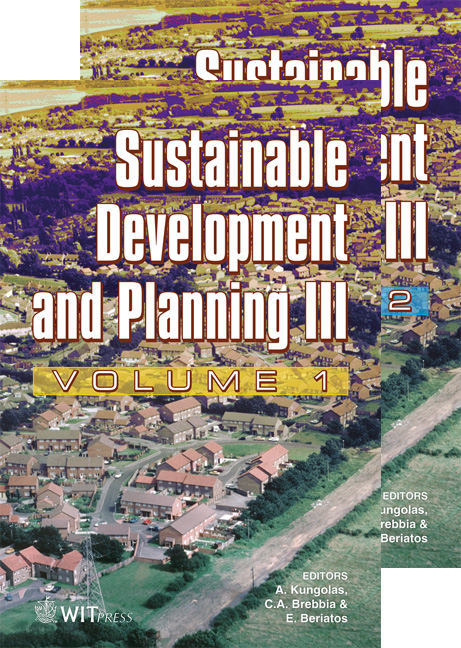Organisational Factors In The Development And Implementation Of Sustainable Urban Design: A Preliminary Assessment Of Innovation Within A Statutory Urban Land Development Agency
Price
Free (open access)
Transaction
Volume
102
Pages
10
Published
2007
Size
306 kb
Paper DOI
10.2495/SDP070562
Copyright
WIT Press
Author(s)
G. Binder & T. Dalton
Abstract
In Australia master-planned communities (MPC’s) form a significant part of the outer suburban housing market. Recently developers have started to engage with the issue of Sustainable Urban Design (SUD). MPC’s at the very least feature extensive on-site storm-water management. The Victorian State Government has developed an extensive urban planning policy for managing Melbourne’s future growth that promotes sustainable urban design. The government statutory urban land development business, VicUrban, is charged with delivering this policy and is planning an 8000 home MPC, Aurora, which will feature extensive SUD principles. VicUrban is developing its Sustainability Charter to use in planning, implementing and evaluating its projects. The charter features a TBL framework as well as a focus on affordability and New Urbanism. The draft Sustainability Charter uses a scoring assessment framework for encouraging change. For example, points are awarded for desired features, like using materials with a low embodied energy, and penalties apply if items that have been discriminated against are used, for example using rainforest timbers. This paper starts to explore the organisational mechanisms that are being utilised by VicUrban to develop and implement SUD at Aurora. Keywords: urban design, government business, scoring assessment, developers, sustainability, performance planning.
Keywords
urban design, government business, scoring assessment, developers, sustainability, performance planning.





